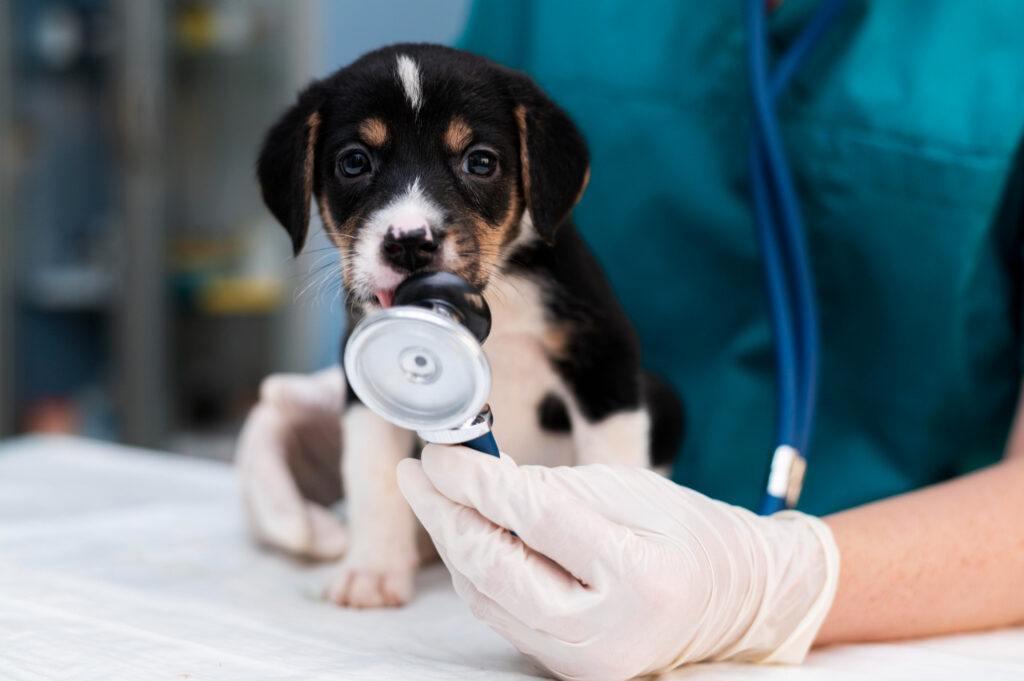Nobody likes to think that their pet might face an emergency, but being prepared is the best way to protect your companion. Knowing how to act in emergency situations can save your pet’s life. In this blog post, we will show you what to do in different types of pet emergencies and how you can stay calm during critical moments.
Identifying an Emergency
The first step is recognizing that something is wrong. Some signs of an emergency include:
- Difficulty breathing
- Heavy bleeding
- Persistent vomiting or diarrhea
- Fainting or seizures
- Severe swelling, especially in the face or paws
These symptoms indicate that your pet needs immediate help.
First Aid for Shock Cases
If your pet experiences trauma, such as being hit by a car, they may go into shock. Signs include pale gums, rapid or shallow breathing, and extreme lethargy. If this happens, keep the pet warm and take them to the vet immediately. Do not try to feed or give water until they are stable.
What to Do in Case of Drowning
If your pet falls into the water and is unconscious, it’s important to act quickly. First, carefully remove them from the water. Check if they are breathing; if not, perform mouth-to-mouth resuscitation or chest compressions. After providing first aid, take the pet to the vet, as they may have water in their lungs.
Choking and Foreign Objects
Pets, especially dogs and cats, can swallow foreign objects. If your pet is choking, try to remove the object with your hands, but do so carefully to avoid pushing it further down. If you can’t remove it, you can try the Heimlich maneuver for dogs. After the emergency, take them to the vet to ensure there are no other injuries.
Severe Allergic Reactions
Allergic reactions, such as sudden facial swelling or difficulty breathing, can be life-threatening. If your pet has a severe allergic reaction, take them to the vet immediately. Until then, try to keep them calm and prevent them from scratching, as this can worsen the situation.
Poisoning or Toxicity
If your pet ingests something toxic, such as poisonous plants, cleaning products, or medications, time is critical. Call your vet or an animal poison control center immediately. Do not induce vomiting without professional guidance, as this can cause more harm.
Stay Calm
Staying calm in emergency situations is difficult but crucial. Your pet can sense your anxiety, which may increase their stress. Take deep breaths and act with confidence – this will help both you and your pet.
Take Your Pet to the Vet
In any emergency, the next step is always to take your pet to a veterinary hospital as quickly as possible. Having the contact information of a 24-hour veterinary hospital on hand is essential.
Count on All 4 Pets Emergency Hospital
We are a 24-hour emergency hospital, operating 365 days a year, providing reference service with highly qualified professionals in their areas.
We have a diagnostic center with computed tomography, X-ray, ultrasound, echocardiogram, electrocardiogram, hematology and urinalysis and we have large and comfortable ICUs and two operating rooms.
Our offices are designed and developed for the comfort of our clients. In addition to a generous wooded outdoor area, designed for dogs to relax with their owners during the visit. Our entire environment is prepared and equipped with what your pets need, when they need it. We seek to offer great comfort and hospitality in our services.







